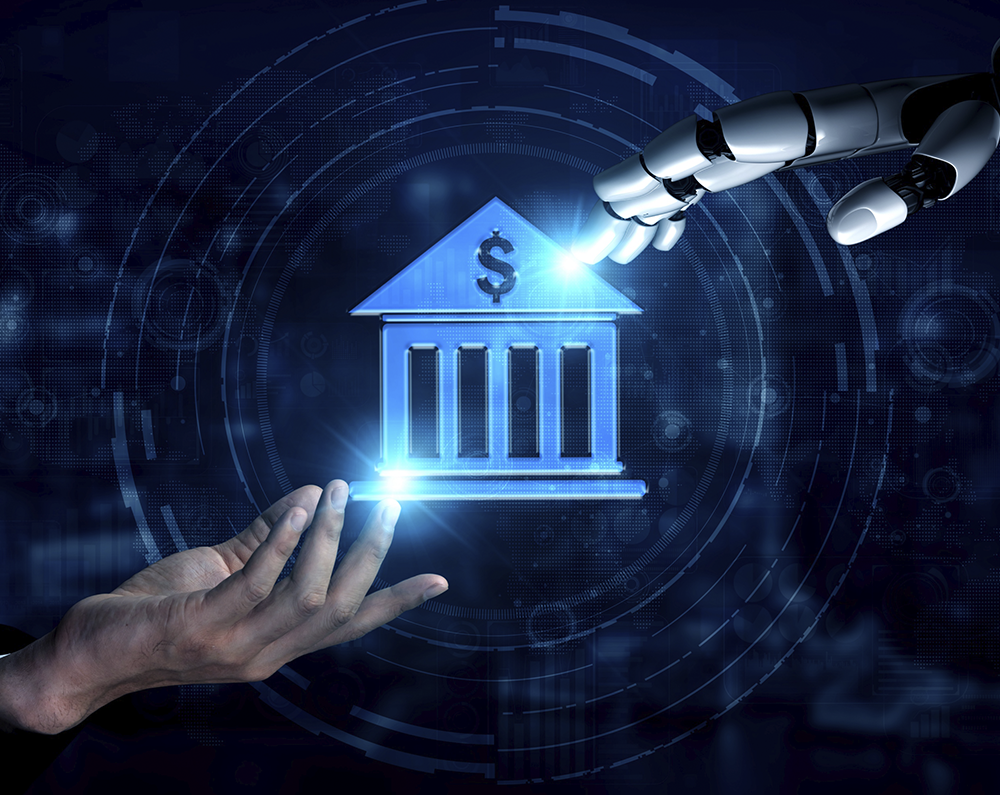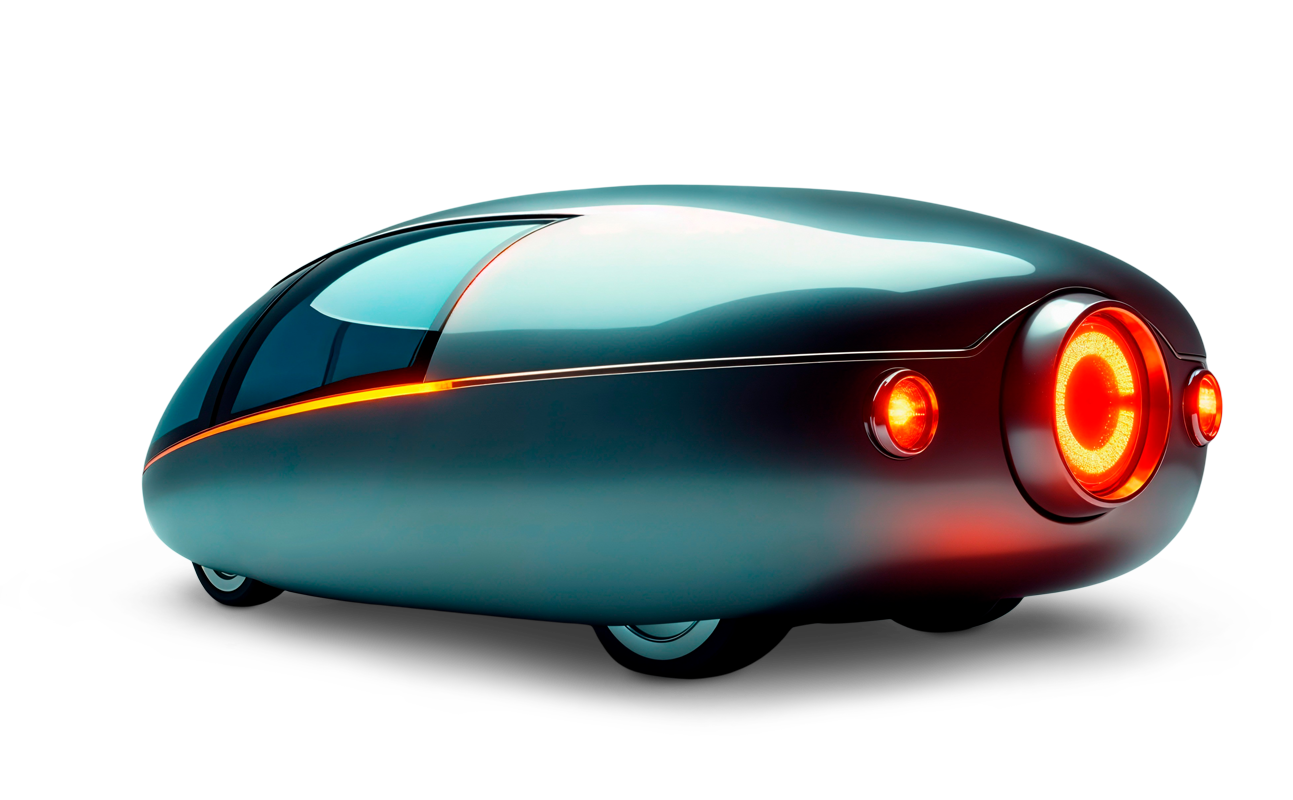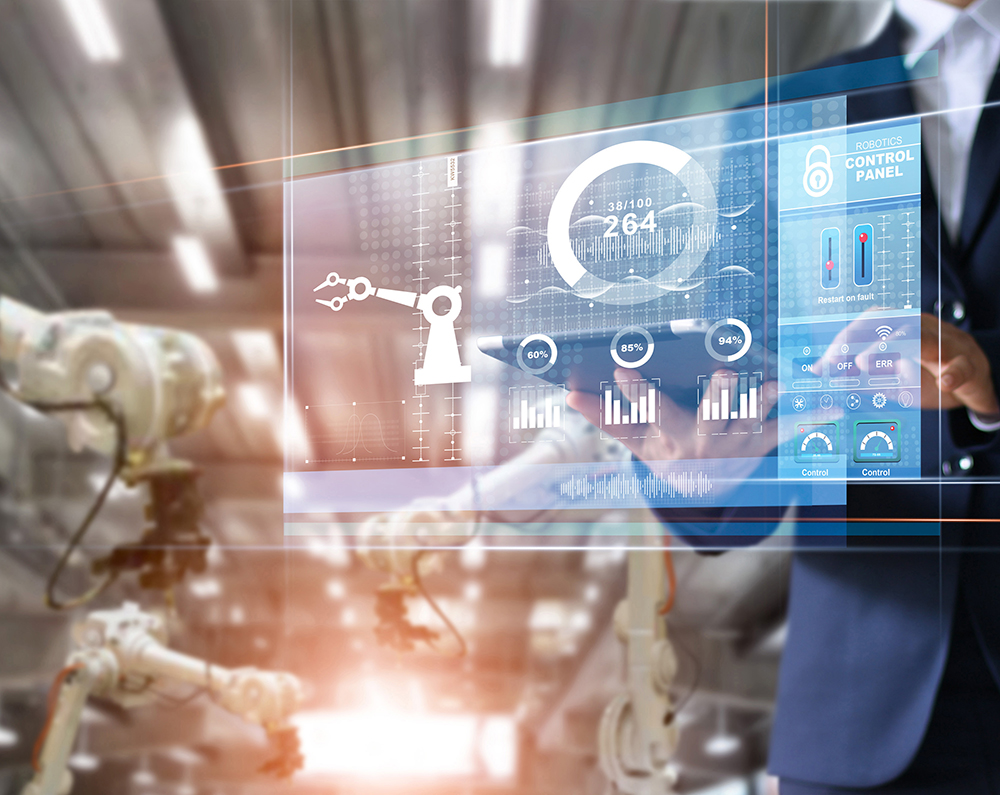


THE AUTHOR
George Philip
Sr. Vice President (Data Analytics and Emerging Technologies)
Table of Content
- How AI is Transforming the Automotive Industry
- The Power of AI in Automobile
- Real-World Applications of AI in Automobiles
- Key Challenges and Factors to Consider for AI in Automotive
- What's Next for AI in the Automotive Industry?
- Smart AI Solutions: How Korcomptenz Leads the Way
- Wrapping Up
- FAQs About AI in Automotive
AI is driving big changes in the automotive world, literally! From self-driving technology to predictive maintenance, it’s making cars smarter, safer, and more efficient.
When we talk about AI in automotive, we mean cutting-edge machine learning, deep learning, and computer vision that enhance everything from vehicle design and production to real-time driving experiences. Automakers and tech innovators are using AI-powered insights to build intelligent vehicles that adapt to road conditions and driver behavior.
The AI boom in the auto industry is just getting started! The automotive intelligence market crossed a whopping $6 billion in 2022 and is set to skyrocket with over 55 percent CAGR through 2032. With autonomous vehicles gaining traction worldwide, AI is fueling the next big wave of innovation in the industry. Buckle up—exciting times ahead!
Unlock the potential of AI in the automobile sector with Korcomptenz

In this blog, we’ll dive into how AI is reshaping the automotive industry, its biggest advantages, use cases, the challenges ahead, and what the future holds.
How AI is Transforming the Automotive Industry
Artificial intelligence in the automotive industry is shifting gears, making vehicles smarter, safer, and more efficient. AI-driven autonomous cars are already reshaping transportation, reducing accidents, and easing traffic congestion. Predictive maintenance powered by AI helps detect potential issues early, extending a vehicle’s lifespan.
On the manufacturing side, AI optimizes production, cutting costs while improving quality. Inside the car, it enhances the driving experience with advanced driver-assistance systems (ADAS), voice recognition, and personalized infotainment. Plus, AI-driven data insights are revolutionizing vehicle design and development.
Simply put, AI technology is steering the auto industry toward a future that is not just high-tech but also safer and more sustainable.
The Power of AI in Automobile
The auto industry is embracing AI like never before, making vehicles smarter, safer, and more efficient. With the power of big data, IoT, and machine learning, artificial intelligence in the automotive industry is revolutionizing everything from how cars are designed and built to how they operate on the road.
From self-driving technology to next-gen safety features, AI is pushing the boundaries of innovation. Let’s take a closer look at the biggest ways AI is transforming the world of automobiles.
Proactive Vehicle Care
Leveraging AI and IoT software development services, the automotive industry is taking vehicle maintenance to the next level. IoT-powered systems continuously track real-time vehicle conditions, analyzing data to anticipate maintenance needs. When sensors detect a potential issue, they instantly notify managers, allowing them to address concerns before they escalate into costly repairs.
Beyond maintenance, AI is also driving improvements in fuel efficiency, lowering emissions, and enhancing overall vehicle performance, making modern cars smarter, greener, and more dependable.
Smarter, Safer Driving
Driving has never been safer, thanks to AI. Smart features like lane-keeping assistance, automatic braking, and adaptive cruise control constantly monitor road conditions, helping drivers react faster to potential dangers. By providing real-time alerts and even taking corrective actions when needed, AI is making roads more secure for everyone.
AI-Powered Driving
Self-driving cars once seemed like futuristic fantasies, but today, they’re revolutionizing the way we travel. With advancements in automotive intelligence, autonomous driving technology is enhancing road safety, easing traffic congestion, and providing newfound mobility for individuals who are unable to drive. It’s more than just innovation—it’s a step toward a smarter, more accessible future in transportation.
Efficient Cost Management
The rise of AI in automobiles is proving to be a game-changer when it comes to cutting costs across the board, from design and production to everyday operations. By streamlining manufacturing, enhancing supply chain efficiency, and spotting potential vehicle issues early, AI helps businesses save big while improving overall performance.
Beyond just cost savings, AI is driving innovation, reshaping the industry, and transforming how we interact with and experience our vehicles.
Smarter Driving Experience
AI-powered infotainment systems are transforming the way we experience driving, making every journey safer, smarter, and more enjoyable. With automotive intelligence, cars now offer personalized experiences for both drivers and passengers. Take smart voice assistants, for example—they understand regional languages and handle everything from playing your favorite tunes to adjusting the temperature and providing real-time navigation. It’s like having a co-pilot that knows exactly what you need!
Real-World Applications of AI in Automobiles
The automotive industry is experiencing a major shift, with technology redefining how vehicles are designed, built, and used. AI in the automotive industry is at the forefront of this transformation, enabling innovations like self-driving capabilities, real-time vehicle connectivity, electrification, and smarter mobility solutions.
AI’s impact spans the entire vehicle lifecycle, from optimizing production lines to enhancing driver experiences and predictive maintenance. As automakers push for smarter and more efficient vehicles, AI continues to be the driving force behind the future of mobility.
Next-Level Driver Support
Driver assistance stands out as one of the coolest applications in the automotive world. Thanks to AI in automobiles, modern vehicles come equipped with smart sensor systems that not only lend a hand with steering but also keep a vigilant eye on pedestrians and blind spots. They even alert drivers to any potential hazards, helping everyone take proactive steps to stay safe on the road.
Smart In-Car Assistant
Many automakers integrate popular voice assistants like Alexa and Siri, but some take it a step further by developing their AI-powered in-car assistants. These systems do more than just follow commands—they make your drive smoother and more personalized. Whether it’s making a call, fine-tuning the temperature, switching up the music, or even giving you a heads-up about your fuel levels, they’ve got you covered. Plus, with built-in personalization, they learn your preferences over time, offering suggestions tailored just for you.
AI-Powered Manufacturing
The automotive industry depends on precise and efficient manufacturing, where even small mistakes can lead to major setbacks. AI in automobiles is transforming production by automating repetitive tasks, reducing human errors, and optimizing assembly lines. Smart robots can identify and sort parts with incredible accuracy, cutting down on manual labor and speeding up the process. Additionally, AI-driven predictive maintenance helps detect equipment issues early, preventing unexpected breakdowns and costly delays. By integrating AI, manufacturers can boost efficiency, enhance quality, and keep production running smoothly.
Supply Chain Management
Managing the supply chain in the automotive world is no easy feat—imagine tracking around 30,000 different parts sourced globally! Keeping tabs on their movement and ensuring they arrive at the right place on time can be a logistical nightmare. That’s where AI in the automotive industry comes in. By leveraging AI and machine learning, manufacturers can build smarter, more automated supply chains that adapt in real-time. AI helps optimize delivery routes, predict demand fluctuations, and streamline inventory management, making the entire process more efficient and less prone to delays.
AI-Powered Automotive Design
Designing a car from concept to reality is no small feat—it’s a time-intensive process with countless moving parts. But thanks to AI, manufacturers and designers can streamline everything from real-time tracking to programmable shading, making the design phase more efficient than ever. AI not only speeds up approvals but also taps into vast image datasets to generate multiple design variations, helping brands refine their models and bring innovative vehicles to life faster.
Improving Passenger Comfort
To make every ride smarter and safer, automotive manufacturers are integrating cutting-edge AI in automotive industry technologies like IoT, image recognition, NLP, and object detection. These innovations not only enhance safety but also elevate the in-car experience. With simple voice commands, passengers can play their favorite tunes, order food, and enjoy a more connected journey.
Smart & Connected Vehicles
With the rise of IoT-powered AI in vehicle industry systems, cars can now seamlessly connect with smart devices like watches, mobile phones, and even city infrastructure. This enhanced connectivity makes self-driving cars not just a reality but a safer and more enjoyable experience. Imagine cars communicating with each other to maintain safe distances or alerting drivers about road hazards in real-time. Plus, connected vehicles give traffic managers a bird’s-eye view of road conditions, helping them optimize traffic flow and reduce congestion.
Ensuring Top-Notch Quality
Ensuring vehicle quality is a top priority for automakers looking to retain customers. Relying on manual inspections can lead to missed defects, slower issue resolution, and longer turnaround times. However, with AI, manufacturers can leverage AI-powered data annotation to detect even the smallest flaws early on. These intelligent systems alert teams about potential issues before they escalate, ensuring timely maintenance and part replacements, ultimately leading to safer, more reliable vehicles.
Key Challenges and Factors to Consider for AI in Automotive
While the AI in automotive industry is evolving with time, it also brings significant challenges. Cybersecurity is a major concern, as AI-powered vehicles handle vast amounts of sensitive data, making them vulnerable to hacking and digital threats. Protecting these intelligent systems from potential breaches is essential to ensuring safety and reliability on the road.
Then there’s the ethical side of things. If a self-driving car gets into an accident, who takes responsibility? These are the tough questions the industry needs to tackle. As AI continues to shape the future of mobility, automakers must stay ahead by addressing these risks with smart, proactive solutions.
The automotive industry can tackle these AI-related challenges with the following strategies:
Data Privacy – With AI in vehicles, data privacy is a big deal. The industry can tackle this by keeping data collection to just what’s needed for safe driving and putting strong protection measures in place. On top of that, companies should be crystal clear about how they use the data and give people control over their information.
Transparency – When the automotive industry is upfront about the algorithms and decision-making behind these cars, it not only builds trust but also helps people get a clearer picture of how they operate.
Testing & Regulation – Before hitting the road, these vehicles need to go through thorough testing and be vetted by government agencies. That way, we can be sure the technology is safe, reliable, and free from major ethical concerns before the public starts using it.
Ethical Standards – The automotive industry can set clear ethical guidelines for AI in vehicles, making sure everyone—manufacturers, operators, and regulators—knows their role in keeping things safe and responsible. These guidelines should also tackle big questions like liability and accountability if something goes wrong on the road
What's Next for AI in the Automotive Industry?
With the rapid rise of self-driving technology, it’s clear that autonomous vehicles will soon dominate the roads. Experts predict that by the end of this decade, nearly 90% of cars will be equipped with AI-enabled systems. From AI in automotive manufacturing to vehicle design, maintenance, and even sales, artificial intelligence is playing a key role in making cars smarter, more efficient, and safer.
Market research from Statista shows that the global automotive intelligence sector, valued at $2.5 billion in 2019, is expected to surge to $74.5 billion by 2030.
The automotive industry is on the verge of a technological revolution, largely driven by AI. Automakers worldwide are already investing heavily in smart vehicle development, proving that the future of AI in the automotive industry is unfolding now. AI is reshaping everything from production lines to driving experiences, marking a new chapter in the evolution of transportation.
Smart AI Solutions: How Korcomptenz Leads the Way
As a Microsoft Certified Solution Partner and Direct Cloud Services Partner (Direct CSP), we bring deep expertise in AI in automotive, enterprise analytics, modern data cloud, and AI-driven enterprise solutions for global clients. Our “AI-First” approach is all about helping businesses unlock real, measurable value and gain a competitive edge.
By integrating AI Copilots into business analytics, we’re scaling self-service Generative BI capabilities across enterprises, making data-driven decision-making more intuitive and efficient. Our approach combines advanced data modeling, strategic project design, and comprehensive system assessments to ensure seamless project execution.
Quality is at the heart of everything we do. With rigorous quality assurance processes throughout the project lifecycle, we guarantee accuracy, reliability, and integrity in data and insights—key factors in leveraging AI for automobile innovation and beyond.
Wrapping Up
The adoption of AI in automotive is reshaping the industry, driving advancements in everything from vehicle design and supply chain management to road safety and passenger comfort. It enhances fuel efficiency, enables predictive maintenance for both production machinery and vehicles and supports the evolution of autonomous driving. As AI continues to gain momentum, companies that harness its potential are setting new standards for innovation and efficiency, positioning themselves for long-term success.
If you’re looking for cutting-edge AI development services to make your automotive business smarter and more efficient, Korcomptenz is here to help. As a leading provider of AI for automotive industry solutions, we specialize in next-gen AI-driven software, delivering world-class Generative AI development services across the US, Canada, Australia, Dubai, and India.
No matter your vision or project scope, our custom AI solutions are designed to align perfectly with your business objectives. Reach out to us today and discover how we can help you seamlessly integrate AI in automotive for a future-ready business.
The success of AI solutions depends on ongoing monitoring and adjustments. Banks should establish a review cycle to assess performance, strengthen cybersecurity, and ensure smooth operations. As new data flows in, maintaining data quality and fairness is crucial for optimal AI outcomes, shaping the future of AI in banking.

Focus on you
FAQs About AI in Automotive
What does AI mean for the automotive industry?
AI in the automotive industry refers to the use of intelligent technologies to enhance vehicle performance, driver safety, and passenger experience. It enables real-time data analysis and decision-making, powering innovations like self-driving cars, advanced driver assistance systems, and personal assistants. AI-driven technologies, including machine learning, computer vision, and robotics, also optimize production, streamline supply chains, and reduce costs, making the industry more efficient.
How is AI transforming the automotive industry?
AI is reshaping the automotive sector by boosting vehicle safety, efficiency, and overall performance. It drives innovations like autonomous driving, electric mobility, and personalized in-car experiences. Beyond vehicles, AI enhances manufacturing, streamlines supply chains, and reduces operational costs. Simply put, AI in the automobile industry is revolutionizing transportation, making it more intelligent, secure, and sustainable while improving production and logistics.
What does the future hold for AI in vehicles?
The future of AI in vehicles is set to redefine the automotive industry, driving advancements in autonomous driving, production efficiency, and road safety. AI-powered systems will enhance passenger experiences, streamline manufacturing, and optimize data-driven decision-making. As technology evolves, AI will disrupt traditional transportation methods and introduce new business models, making the automotive sector smarter, safer, and more innovative than ever.
What is predictive maintenance in AI-driven automotive technology?
Predictive maintenance in the AI-driven automotive industry leverages machine learning and vehicle sensor data to detect potential issues before they escalate. This proactive approach helps schedule maintenance at the right time, minimizing unexpected breakdowns, reducing repair costs, and extending the vehicle’s lifespan. By optimizing maintenance strategies, AI enhances overall efficiency, reliability, and performance in modern automotive systems
How does AI help reduce costs in the automotive industry?
AI in the automotive industry lowers costs by streamlining production, minimizing waste, and enhancing quality control. Predictive maintenance helps prevent unexpected failures, reducing downtime and repair expenses. AI also optimizes supply chains by forecasting demand accurately, cutting excess inventory. Additionally, AI-powered automation improves manufacturing efficiency, reduces labor costs, and accelerates production, ultimately boosting profitability and operational performance.




